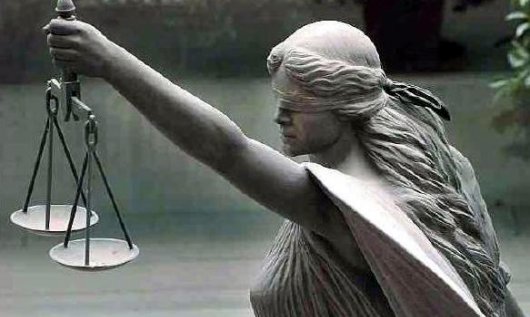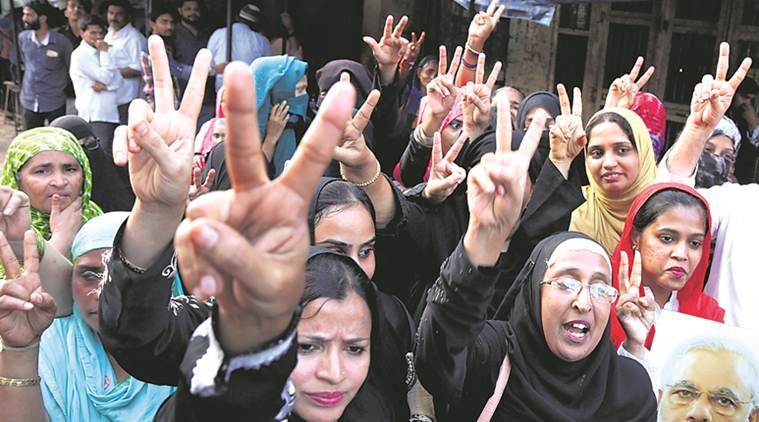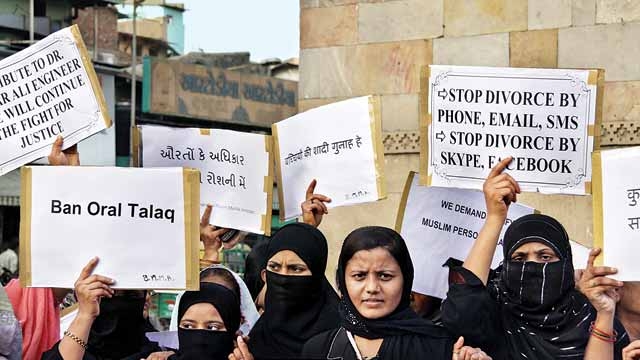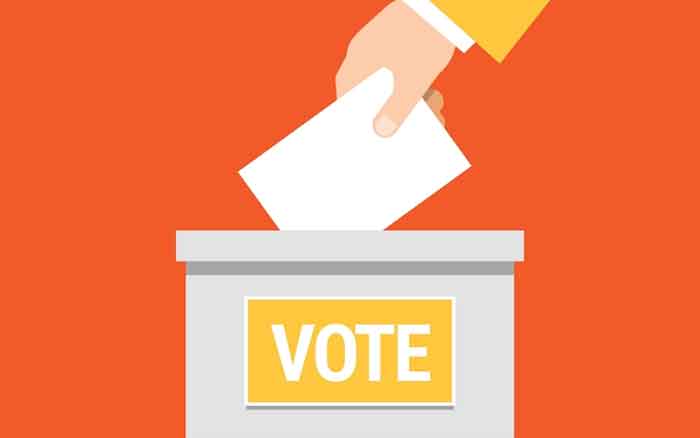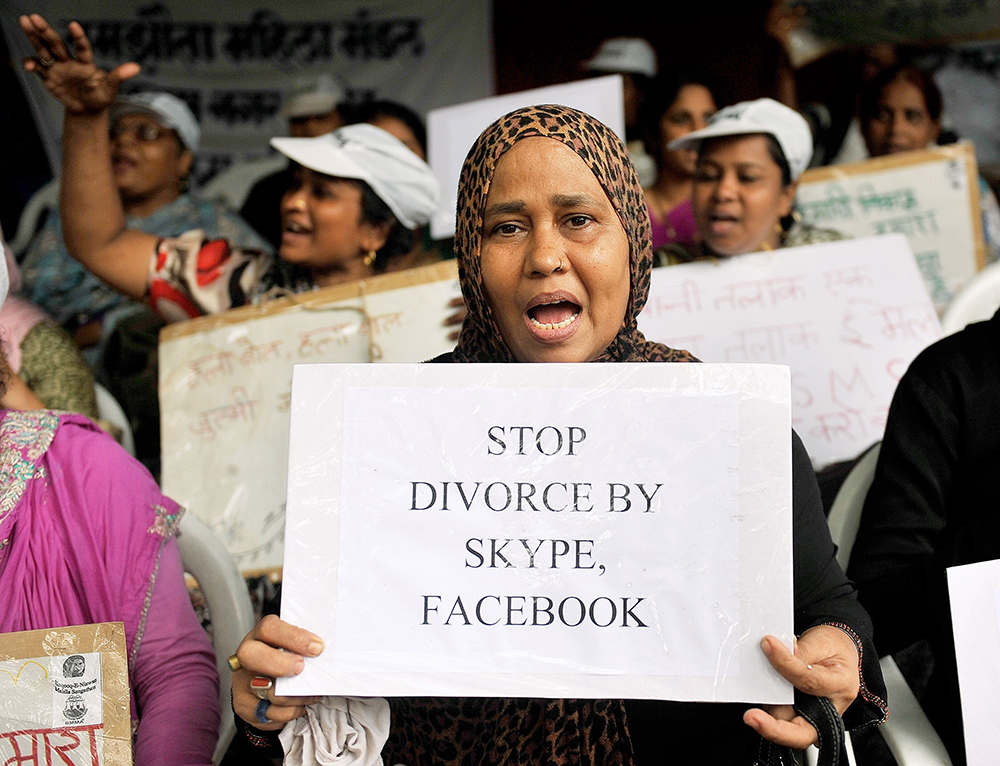
Since the BJP government came into power in 2014, it has initiated and purposed to make legislation on Muslim women mainly around the instant Triple talaq. Just few days back, Bill has been passed in the Lok Sabha where BJP has majority. However, opposition’s parties belonging to the Left, Congress and including Muslims political parties (AIMIM) led by Mr. Asaduddin Owaisi, vehemently opposed the move in the parliament and fiercely argued that this Bill in current forms and contents is not going to provide justice to the Muslim women as often argued by the BJP leaders. For opposition’s parties, the purpose of the government is to create divide between Muslim men and women by criminalizing Muslim men. Mr. Owaisi, Congress leaders and CPM leader like M.P Mohammed. Salim in the Parliament have argued current Bill in the present forms is against the principles of equality, cultural freedom, pluralism and the basic tenets of the Indian Constitutions. Despite the oppositions, the Bill has been passed by the Lok Sabha and now the BJP has introduced the Bill in the Rajya Sabha on 31December 2018, however, amid uproar the said opposition parties have boycotted and walk out from the parliament. The BJP government has decided to table again the Bill on January 2, 2019 in the Rajya Sabha.
In response to the critique against the Bill, mainly done by the community leaders and secular forces, the BJP leaders in the Parliament and elsewhere said that we are not interfering into the Islamic Sharia (as allegedly made by the religious scholars, community leaders including secularists) because for the BJP provision of the instant Triple talaq is not mentioned in the most holly and the sacred text like Quran. And even some school of thought like Salafis (Who claimed to represent the purist from of Islam which was prevalent during the Prophet life) have had already taken clear stand against the abolition of instant Triple talaq. Besides, several Muslim countries have also disbanded the idea of giving instant triple talaq, added by BJP leader Mukhtar Abas Naqvi. In short, while underling the importance of the Bill the BJP leaders said in the Parliament that we are firmly stand for ‘gender justice’ and concern for ‘humanity’. It is ironical to note that the same BJP leaders had openly opposed the ‘Communal violence Bill’ when the UPA government led by Congress has tabled the Bill in the Parliament, noted by the CPM leader and M.P Salim saheb.
Contrary to the claim of gender justice, the point must be remembered here that BJP predecessor, Hindu Maha Sabha and the RSS had not welcomed, when ‘The Hindu Code Bill’ (which advocated rights for the Hindu women and gender equality in laws of inheritance and Marriage) was introduced in the Constituent Assembly on 11th April 1947, drafted by Babasaheb Ambedkar. That was the reason, why Dr. Baba Saheb had compelled to resign from the Nehru cabinet in 1951. The recent Sabarimala temple entry in the context of Kerala can be taken as a case in point here. Despite the Supreme court verdict, the BJP government and their leaders who are now advocating the gender justice for the Muslim women have not in the favor of giving individual freedom to the Hindu Women to visit at Sabarimala temple.
In what follows, in this small piece, I am not going to discuss the legal and theological discourse around the said Bill; legal experts and Islamic scholars have earlier written and highlighted the limitations of this particular Bill. Here, I am mainly concerned about the ‘public discourse’ which has been created by the Hindu Nationalist forces with respect to gender justice and minority rights including idea of ‘legal pluralism’. In doing so, I argue that the stand taken by the so-called conservative corporate owned media and communal forces is guided by the political motive and ‘disciplining’ the Muslim community rather than providing justice and equality to the Muslim women.
Fact must be noted that the BJP-RSS and even some section of the so-called liberal intelligentsia think that there are inevitable tension between the community rights and norms of gender equality and individual women freedom as seen in the famous and controversial Shah Bano case in 1986. At that time, acrimonious debates took place and opinions were sharply polarized on communal and gender lines. Some sections liberal and right-wing forces had noted that the tension between the community rights/minority rights and gender justice were in fact irreconcilable. Fact cannot be ignored that certain section of conservatives and fundamentalist forces within the Muslim community have had strongly opposed the Supreme Court verdict given in the case of Shah Bano (a divorced women, 70 years old). As a result, then the Prime Minister Rajiv Gandhi succumb to the pressure of Muslim conservative forces and the Muslim women (Protection of Rights on Divorce Act -1986) had been passed by the Parliament to overrule the supreme court verdict and exempted from the 125 of Indian Criminal Procedure Code (under this section, provisions are made to provide maintenance by the ex-husband till divorced women get remarriage).
However, most of the political theorists and feminist scholars have argued that ‘illiberal’ community practices and patriarchal norms could not be justified when it violate and infringed the ‘individual freedom’ as happened in the case of Shah Bano. The critique of the then the Rajiv Gandhi’s government had been done by feminists and others liberal intelligentsias on the ground of gender justice and individual freedom. It is interesting to note that stand taken by secularists, feminists were similar to that of the Hindu nationalist forces with respect to opposing the Rajive Gandhi’s government stand on gender justice. And under the pretext of gender justice, the BJP-RSS put-forward the agenda of Uniform Civil code and said that the Congress party acting as a ‘pseudo-secular’ party and promoting the ‘politics of appeasement’. Still the BJP and RSS maintain earlier position with regards to minority rights. That is why communal forces have never accepted the sachar committee report (SCR; 2006) which has also underlined the pathetic conditions about Muslim Women. As, I elsewhere argued that SCR was not for only the Muslim community alone, while reading SCR recommendations holistically, one could safely argue that agenda of SCR is based on ‘Idea of Inclusive’ India as often said by Prof. Amitab Kundu former Professor at JNU.
It is relevant to underline here that what Dr. Ambedkar had said about the minority rights long ago, need to remember in age of Hindutva, ‘every minority, irrespective of any other consideration, is entitled to the right to use their language, script and culture and right not be precluded from establishing any educational institution that they wish to establish’. (Cited by Prof. Rajeev Bhargava, ‘Muslim Personal Law and the Majority-Minority Syndrome’ in his book ’The Promises to India’s secular Democracy, OUP, New Delhi, 2010, p- 159).
However, to maintain the distance from the Hindutva forces, feminist and secularists and others liberal minded scholars have now slightly changed their position and stand for pushing the ‘reform from within’ as for as the Muslim Personal laws reform and gender justice is concern. In this respect, an eminent political theorist, Prof. Rajeev Bhargava and others have taken the position that ‘Democratic state’ should provide ‘liberal conditions’ to push the agenda of ‘internal reform’ within community, so that the norms of gender equality and freedom could not be violated (See Prof. Bhargava, p-161). However, right to ‘exist’ from the community for male or female individuals could not be bypassed as enshrined in our secular Constitution.
To note that certain section of orthodox clerics have had interpreted Islam in a very patriarchal manner and having ‘medievalist mentality’ on the gender question. While doing so, conservatives (mainly the upper-caste Muslims male) have undermined the norms of gender equality and more importantly, right to Muslim women and their agency to access the rights and opportunities, incorporated in the Indian constitutions and even enshrined in the Quran as underlined by Muslim women social activists and Bhartiya Muslim Mahila Andolan.
Besides, Islamic scholar like Asghar Ali Engineer and Islamic feminist like Asma Barlas and Amana Wadud have consistently argued that in the Islam there is enough provisions of ‘gender equality’. However, the manner in which conservative Mullahs had have interpreted ‘Islamic theology’- from the established patriarchal norms in society like India, and thereby not treating Muslim women equally vis-a-vis Muslim men, in spite of egalitarian norms prevalent in the early Islamic theology. In this respect, many fatwas have been given by the orthodox religious scholars to maintain the ‘status-quo’ and established patriarchcal norms in societies. In short, it could be said that due to the conservative interpretations of Islamic Sharia as said earlier, it appears that community rights (those rights which are based on mainly illiberal norms) and norms of gender equality could not be not be reconcile easily. However, one the basis of progressive and egalitarian interpretations of ‘Islamic theology’ as done by Engineer and Islamic feminists noted earlier, one could argue that nowhere it has been mentioned in the Quranic Text that Muslim women has lower ‘social status’ in compare to Muslim men. In short, keeping the arguments of egalitarian values of Islam in mind, if community rights and gender justice interpreted and seen from the lens of these values, there will be no conflict between community rights and gender justice and hence both kind of rights could be reconcile easily, which the BJP leaders never paid attention who claim to be now sole guardian of gender justice.
To conclude here on the basis of aforementioned points, it can be safely argued that community rights/minority rights, and gender justice as enshrined in our secular Constitution is not fundamentally opposed to each other as the BJP deliberately put-forward in the public domain. The fact must be underlined that the stand of the RSS-BJP combine on minority rights and gender justice with respect to Indian Muslims were always replete with communal bias and politically motivated rather than based on gender justice as often said by the BJP leaders in the public domain.
It is crucial to note that progressive feminist scholar and currently Professor at JNU, Nivedita Menon(Who is also recently in news for her progressive stand mainly against communal forces) observes,
“Uniform Civil Code” has nothing to do at all with gender justice. It has entirely to do with a Hindu nationalist agenda, and is right up there with the beef ban and the temple in Ayodhya. A Uniform Civil Code is meant to discipline Muslims, teach them (if they didn’t know it already) that they are second-class citizens, and that they live at the mercy of “the national race” (the Hindus), as M.S. Golwalkar decreed. (See. The Hindu, 15 July 2016).
In short, on the basis of earlier points made by scholars belonging to different shades of thinking, here it is argued that recent move like instant ‘Triple talaq Bill’ as put-forth by the BJP government is not based on ensuring the ‘gender justice’ for the Muslim women but rather to ‘disciplining’ the entire Muslim community.
The Author is a Ph.D candidate at the Department of Political Science, University of Delhi.

